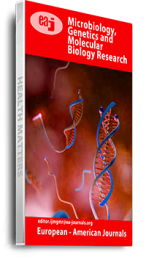Hepatocellular carcinoma (HCC) is a public health issue. It is developed mainly on the bed of chronic liver diseases dominated in our contexts by carriage of chronic HBV and exposure to aflatoxin (AFB1). The aim of our study was to determine the prevalence of codons 248 and 249 mutations of TP53 gene and to study the clinical and biochemical profiles of patients with HCC in Senegal.DNA was extracted from paraffin blocks and fresh tissue from patients diagnosed with HCC. An exon 7 amplification step was followed by digestion (RLFP) with the enzymes Hae III, and Msp I which cut respectively the GG / CC fragments of codon 249 and C / CGG of codon 248.A total of 27 patients with a mean age of 43.7 were included in the study. Males were predominant with a sex ratio of 5.75. Codon 249 mutation was found in 6 patients (22.1%). 5 of them had heterozygous profile. No mutation was found on codon 248. Mutation of codon 249 was specifically found in patients with chronic HBV. Patients with codon 249 mutation were twice as likely to have an altered general condition at the time of diagnosis (RR (CI) = 2.1 (0.5-8C4)) with hyperbilirubinemia (RR = 3.4 (0.4-26.7)). Mutation was more encountered in patients with a large tumour (greater than 10 cm), localized at the right side.Our study confirms hypothetical specificity of codon 249 mutation of exon 7 of TP53 gene in hepatic carcinogenesis in patients with chronic HBV. It seems to be a good molecular marker for the prevention of this cancer in this population at risk.
Keywords: Codons 248 and 249, HBV, Hepatocellular carcinoma, Senegal, TP53 gene

